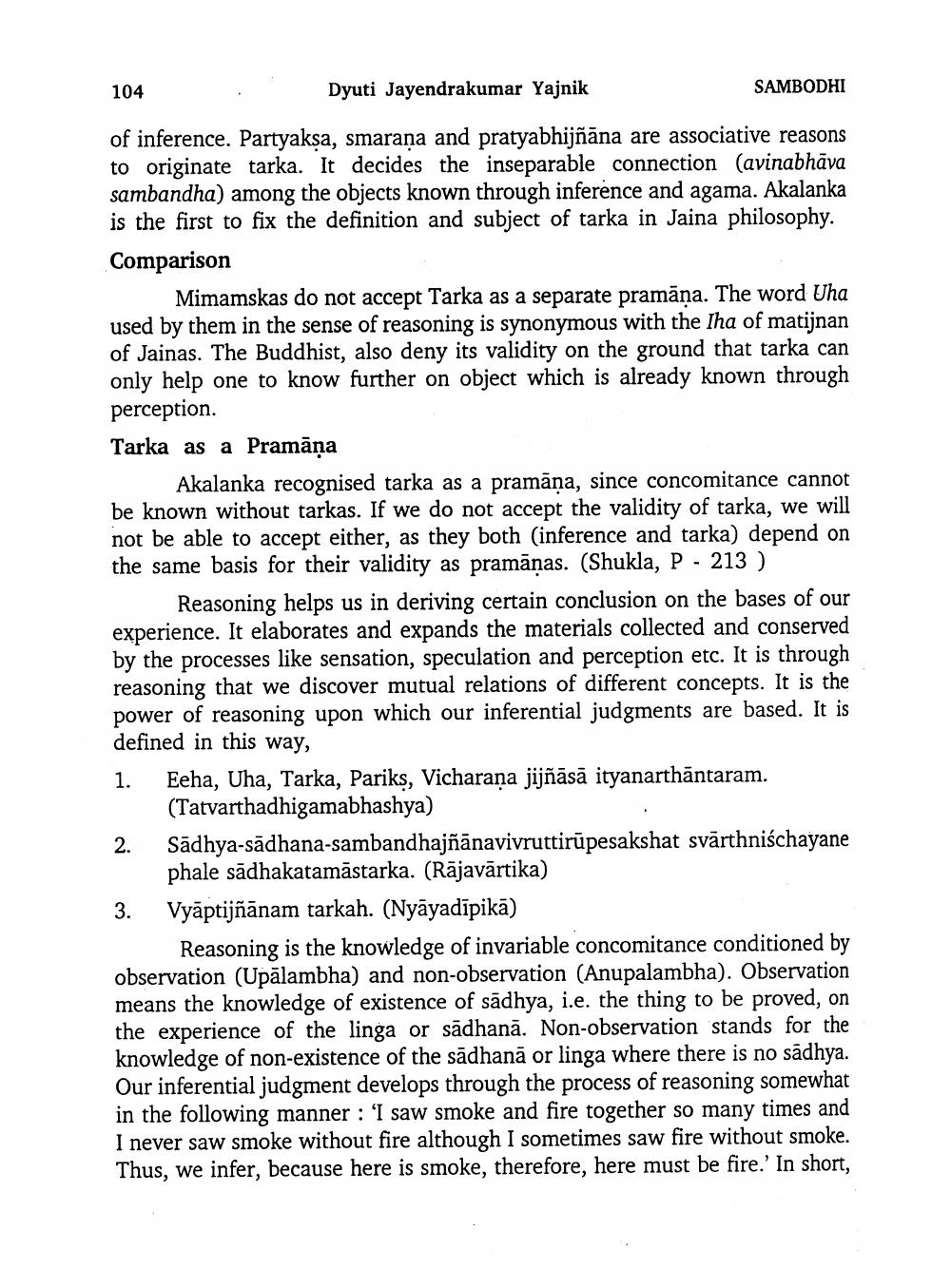________________
104
Dyuti Jayendrakumar Yajnik
SAMBODHI
of inference. Partyaksa, smarana and pratyabhijñāna are associative reasons to originate tarka. It decides the inseparable connection (avinabhāva sambandha) among the objects known through inference and agama. Akalanka is the first to fix the definition and subject of tarka in Jaina philosophy. Comparison
Mimamskas do not accept Tarka as a separate pramāna. The word Uha used by them in the sense of reasoning is synonymous with the Iha of matijnan of Jainas. The Buddhist, also deny its validity on the ground that tarka can only help one to know further on object which is already known through perception. Tarka as a Pramāna
Akalanka recognised tarka as a pramāna, since concomitance cannot be known without tarkas. If we do not accept the validity of tarka, we will not be able to accept either, as they both (inference and tarka) depend on the same basis for their validity as pramānas. (Shukla, P - 213 )
Reasoning helps us in deriving certain conclusion on the bases of our experience. It elaborates and expands the materials collected and conserved by the processes like sensation, speculation and perception etc. It is through reasoning that we discover mutual relations of different concepts. It is the power of reasoning upon which our inferential judgments are based. It is defined in this way, 1. Eeha, Uha, Tarka, Pariks, Vicharana jijñāsā ityanarthāntaram.
(Tatvarthadhigamabhashya) Sadhya-sadhana-sambandhajñānavivruttirūpesakshat svārthniśchayane
phale sādhakatamāstarka. (Räjavārtika) 3. Vyāptijñānam tarkah. (Nyāyadīpikā)
Reasoning is the knowledge of invariable concomitance conditioned by observation (Upālambha) and non-observation (Anupalambha). Observation means the knowledge of existence of sadhya, i.e. the thing to be proved, on the experience of the linga or sādhanā. Non-observation stands for the knowledge of non-existence of the sadhana or linga where there is no sadhya. Our inferential judgment develops through the process of reasoning somewhat in the following manner : 'I saw smoke and fire together so many times and I never saw smoke without fire although I sometimes saw fire without smoke. Thus, we infer, because here is smoke, therefore, here must be fire. In short,




